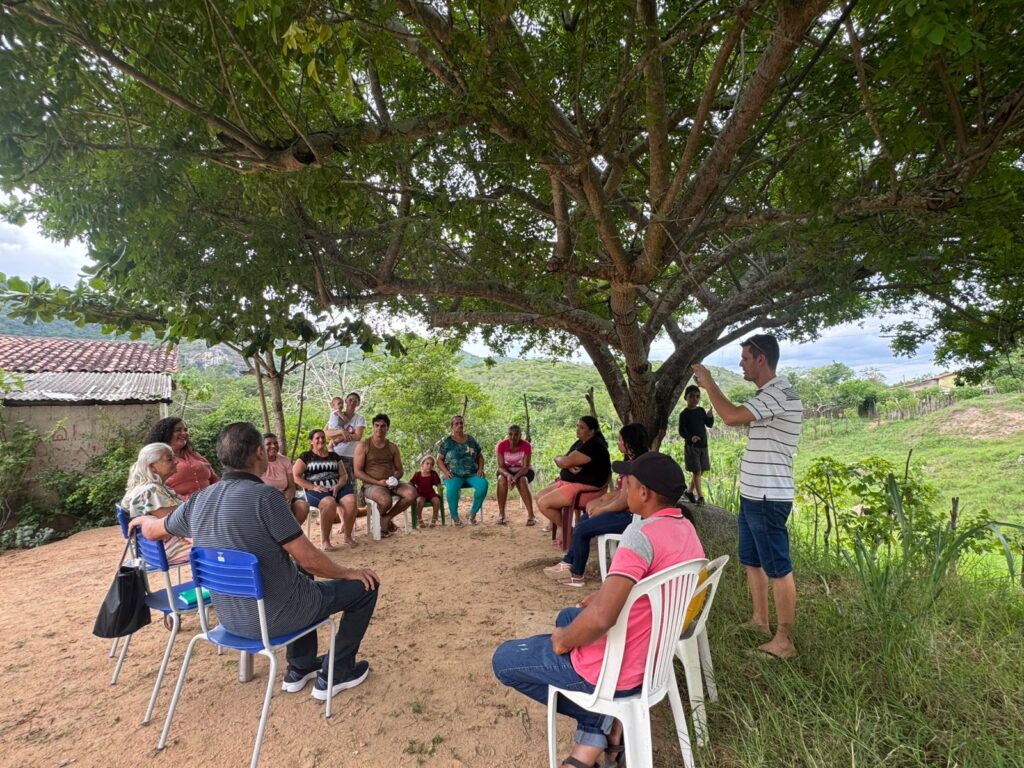Just 17 kilometers from downtown Caruaru (Pernambuco, Brazil), the rural community of Sítio Fundão faces a daily reality of isolation, vulnerability, and thirst. The lack of access to clean water is the most pressing challenge for local families, made worse by the absence of regular public transportation and poor road conditions.
Maria José dos Santos, 66, a lifelong resident of Fundão, sums up the situation: “We don’t even have water to drink.” The few existing wells yield brackish, undrinkable water. The only alternative is to buy water from tanker trucks using the little they receive from social programs like Bolsa Família.
Without access to safe water, growing food, whether for their own use or to generate income, becomes nearly impossible. Community gardens and productive backyards, for example, become impossible to sustain.

A project built with those who live the reality
This initiative emerged directly from the needs expressed by residents and is the result of a partnership among three organizations: the Mãos que Acolhem Association (formed by Fundão residents), Espaço Feminista, and Terra Viva do Brasil Institute.
The project involves the study and development of a water system for capturing, treating, and distributing potable water for domestic use and for cultivating plants and vegetables in a collective nursery. The goal is to ensure access to clean water and improve living conditions in Sítio Fundão.
Project objectives:
- Develop water collection, treatment, and distribution infrastructure based on a technical study that takes social variables and collective decisions into account;
- Build, in collaboration with the community, a nursery and seedbed for edible, endangered native, and drought-resistant plants that contribute to local water security;
- Develop a continuous, community-based care process, committed to maintaining the equipment and supporting plant development;
- Support income-generating initiatives for local families.